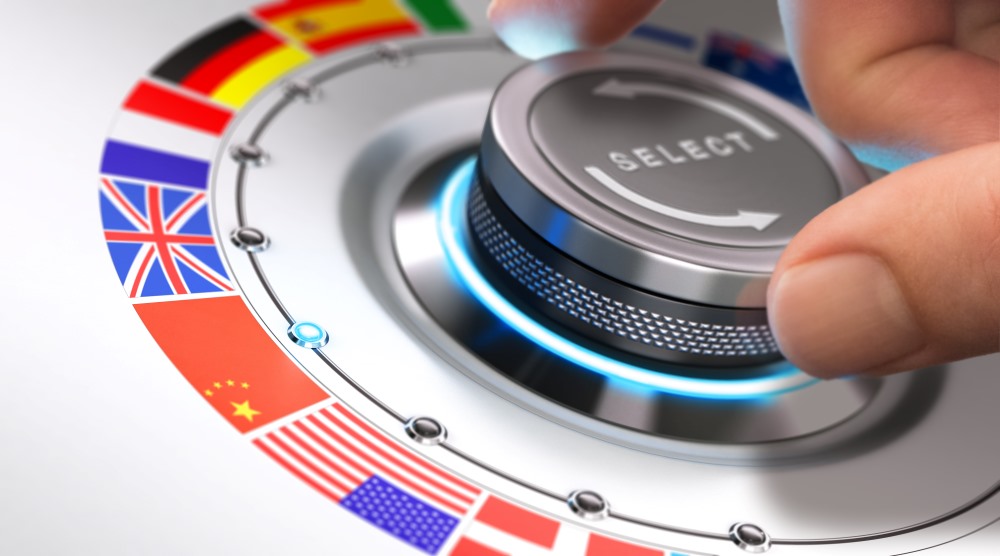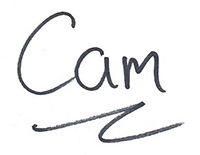
I’ve made a standing joke out of the fact that I don’t speak anything but English, but that I’m fluent in Australian, British, Canadian and American.
It really isn’t a joke. As an author of genre fiction, I learned very early on – with my first manuscript, in fact – that I was expected to write in the language of the market I was submitting to.
In that case, it was a U.K. publisher, so I had to do neat things like change all my double quote marks to single and tighten up my diction considerably. No split infinitives, for example. So the sentence in the last paragraph would have become terribly British and ‘…to have written in the language of the market to which I was submitting.’ (Note the quotes, too.)
Yes, even the characters would have spoken this way. It was the nineties, it was England and I was writing historicals.
Canadian, eh?
Move on a few years, and I’d changed locations from Australia to Canada, and my focus from trying to sell to British markets, to trying to sell to New York. I had to change my writing style from British to American.
But the disorientation didn’t stop there. Try this on for size:
The first two books I ever sold, I sold in the same week. Ironically, the first was sold to a U.S. publisher. It was set in Australia, which I had to re-set in the U.S. …and change the spelling and how the characters spoke.
Interestingly, my translation wasn’t fool-proof. It wasn’t until the book was re-published, several years later, and edited again, when that editor–an Australian– picked up a dozen more Australianisms that had to be converted to Americanisms. However, no one seemed to notice or care too much at the time. I didn’t get angry reader reviews or emails pointing out my errors.
The second book I sold had even more of a bastardized language issue. It was as English as you can get, set in Victorian England, and written with British spelling and vernacular for the era. I sold it to a Canadian publisher, who promptly edited it for Canadian spelling and–where I could not argue my way into keeping the Britishisms–Canadian vernacular.
US or bust
This was the beginning of what has been a career-long double life for me, language-wise.
I grew up spelling and writing Australian. I’ve spent the last twenty-three years in Canada speaking Canadian vernacular with an Australian accent, and using Canadian spelling when I had to (the day job, for instance).
For all my books that I have published with U.S.-based publishers, I have used U.S. spelling and language. Except (and here is where it gets weird), those books set in other countries. For foreign settings with “foreign” characters, I’ve used that character’s natural vernacular, idioms and as much as possible tried to inject the flavour of their accent…all with U.S. spelling.
I know I’ve pulled it off because reviewers have spoken about “hearing” accents. I’ve set books in Canada, Australia and many countries in Europe and the Middle East. I’ve featured characters from all types of cultures, eras and races.
Indie Indecisive
The spelling I was using only became an issue when I started indie publishing and was free to choose.
What language should I publish in?
For me the natural answer should be: Whatever serves the reader best.
Considering that the majority of my readers are in the United States, it seemed best to maintain the U.S. English I’ve been using up until this point.
Except, what about books that are decisively English in flavor, charcter and setting?
In addition, I have other books that are set in Australia and feature Australian characters. Should I use Australian English? My gut says yes, but the idioms and spelling might jar readers out of the fictive spell and remind them they’re reading a story. I try to avoid this whenever possible.
It’s a tricky issue.
I and many other non-US indie authors have received four- or three-star reviews, along with the mention of “typos”, from US readers. The typos were the Australian or British or Canadian spelling of words, including adding “s” to backward, forward, etc. Even when a note is put at the front of the book that the story is written in whatever spelling the author has used, the reviews persist.
This means that for the readers, the language they’re reading in can make it a bad reader experience.
However, Australians and Canadians and to an extent, the English, have also grown up reading and being exposed to U.S. spelling and fiction, so reading stories in American English isn’t as jarring as I’ve been told it is for American readers to try reading U.K. English or any other sort of English than American. I remember this from reading novels when I was still living in Australia. Overseas spelling didn’t bother me. I just rolled with it.
This issue of what version of English should be used was a hot topic on an author discussion list I belong to, just recently, and one of the points raised was that with the advent of indie publishing, authors should publish in their own version of English and let readers adapt to the multicultural variety out there. I think this is an excellent idea.
Yet I still use American English for my science fiction because I would rather have readers (you) forget that they’re reading at all. I just want you to see the story in your head.
Your opinion?

Latest releases:
Quiet Like Fire
Solar Whisper
Ptolemy Lane Tales Omnibus
I live in the US, but I have read books published in the UK various times through the years. If the book is good (at least to me) I’ll roll with the different spellings, etc.
The story and how it’s told is the most important thing.
Thanks, Warren!
This is good to know — although many readers feel the complete opposite!
Cameron